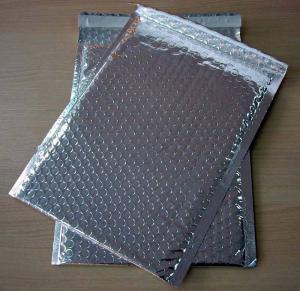Aluminium Foam Sandwich Panels: Lightweight and Strong
Have you ever wondered how modern architecture manages to create such impressive, lightweight structures that still stand strong against the test of time and the elements? The secret lies in the innovative use of materials, and one such material that has been gaining popularity is Aluminium Foam Sandwich Panels. These panels are not just a technological marvel, but they also offer a unique blend of aesthetics and functionality. Let’s dive into the world of these panels and explore their properties, applications, and the benefits they bring to various industries.
The Science Behind the Panels
Aluminium Foam Sandwich Panels are composed of three layers: two thin, rigid aluminium sheets that act as the outer layers, and a lightweight aluminium foam core that sits in between. The foam is created by introducing a foaming agent into molten aluminium, which is then processed to create a uniform, porous structure. This unique combination of materials results in a panel that is both lightweight and incredibly strong.
Why Are They So Special?
The panels’ lightweight nature is a result of the aluminium foam core, which significantly reduces the overall weight of the panel without compromising its structural integrity. This makes them ideal for applications where weight reduction is crucial, such as in the aerospace and automotive industries. Moreover, the panels exhibit excellent energy absorption and impact resistance, making them suitable for use in safety-critical environments.
Applications in Various Industries
Aluminium Foam Sandwich Panels have found their way into a multitude of applications across different industries. In construction, they are used for cladding and insulation, providing both thermal and acoustic insulation. Their lightweight and strong properties also make them perfect for use in bridge construction and temporary structures, where ease of installation and durability are paramount.
In the aerospace industry, these panels are used for aircraft interiors, offering a combination of weight reduction and fire resistance. They also find applications in marine structures, where their corrosion resistance is highly valued. The automotive industry also benefits from the use of these panels, particularly in the production of lightweight vehicles that still maintain high safety standards.
Aesthetic Appeal and Customization
One of the lesser-known aspects of Aluminium Foam Sandwich Panels is their aesthetic appeal. The panels can be easily painted or finished to match the design requirements of any project. This allows architects and designers to incorporate them into their projects without sacrificing the visual appeal of the structure. Furthermore, the panels can be customized in terms of size, shape, and thickness to fit specific design needs.
Environmental Impact and Sustainability
Aluminium is a highly recyclable material, and the use of Aluminium Foam Sandwich Panels contributes to a more sustainable approach to construction and manufacturing. By reducing the weight of structures, these panels also contribute to lower energy consumption during transportation and construction processes. This makes them an environmentally friendly choice for projects that aim to minimize their ecological footprint.
The Future of Aluminium Foam Sandwich Panels
As technology advances, the potential applications of Aluminium Foam Sandwich Panels continue to expand. Researchers are exploring new ways to enhance their properties, such as increasing their thermal insulation capabilities or developing new foaming agents for improved structural performance. The future looks bright for these panels, with more industries set to benefit from their unique combination of lightweight and strength.
Conclusion
Aluminium Foam Sandwich Panels are a testament to the power of innovation in material science. They offer a versatile solution for industries seeking to create lighter, stronger, and more sustainable structures. Whether it’s for the construction of a new building, the design of a high-performance vehicle, or the development of a safe and efficient aerospace interior, these panels are proving to be an invaluable asset. As we continue to push the boundaries of what’s possible, Aluminium Foam Sandwich Panels will undoubtedly play a significant role in shaping the future of design and engineering.

